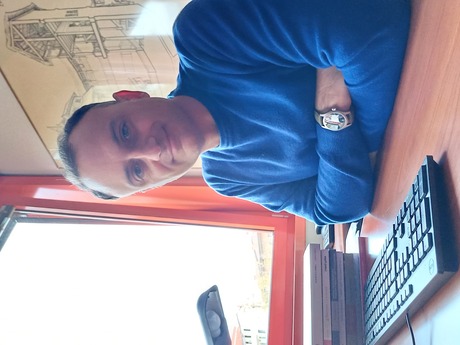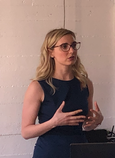Studying at the University of Verona
Here you can find information on the organisational aspects of the Programme, lecture timetables, learning activities and useful contact details for your time at the University, from enrolment to graduation.
Academic calendar
The academic calendar shows the deadlines and scheduled events that are relevant to students, teaching and technical-administrative staff of the University. Public holidays and University closures are also indicated. The academic year normally begins on 1 October each year and ends on 30 September of the following year.
Course calendar
The Academic Calendar sets out the degree programme lecture and exam timetables, as well as the relevant university closure dates..
| Period | From | To |
|---|---|---|
| I semestre (Lingue e letterature straniere) | Sep 27, 2021 | Jan 8, 2022 |
| II semestre (Lingue e letterature straniere) | Feb 14, 2022 | May 28, 2022 |
| Session | From | To |
|---|---|---|
| ESAMI LINGUE - sessione invernale | Jan 10, 2022 | Feb 12, 2022 |
| ESAMI LINGUE - sessione estiva | May 30, 2022 | Jul 23, 2022 |
| ESAMI LINGUE - sessione autunnale | Aug 29, 2022 | Sep 24, 2022 |
| Session | From | To |
|---|---|---|
| LAUREE LINGUE - sessione autunnale (a.a. 2020-2021) | Nov 8, 2021 | Nov 13, 2021 |
| LAUREE LINGUE - sessione straordinaria (a.a. 2020-2021) | Mar 28, 2022 | Apr 2, 2022 |
| LAUREE LINGUE - sessione estiva (a.a. 2021-2022) | Jul 11, 2022 | Jul 16, 2022 |
Exam calendar
Exam dates and rounds are managed by the relevant Foreign Languages and Literatures Teaching and Student Services Unit.
To view all the exam sessions available, please use the Exam dashboard on ESSE3.
If you forgot your login details or have problems logging in, please contact the relevant IT HelpDesk, or check the login details recovery web page.
Should you have any doubts or questions, please check the Enrollment FAQs
Academic staff
Bejarano Bejarano Daniel Eduardo
 danieleduardo.bejaranobejarano@univr.it
danieleduardo.bejaranobejarano@univr.it
 natascia.fregonese@univr.it
natascia.fregonese@univr.it
 piergiovanna.grossi@univr.it
piergiovanna.grossi@univr.it
 elena.mattei@univr.it
elena.mattei@univr.it
 sara.paolini@univr.it
sara.paolini@univr.it
Study Plan
The Study Plan includes all modules, teaching and learning activities that each student will need to undertake during their time at the University.
Please select your Study Plan based on your enrollment year.
1° Year
| Modules | Credits | TAF | SSD |
|---|
1ST FOREIGN LANGUAGE2ND FOREIGN LANGUAGE1ST FOREIGN LITERATURE2ND FOREIGN LITERATURE2° Year activated in the A.Y. 2022/2023
| Modules | Credits | TAF | SSD |
|---|
1ST FOREIGN LANGUAGE2ND FOREIGN LANGUAGE1ST FOREIGN LITERATURE2ND FOREIGN LITERATUREPHILOLOGY RELATED TO 1ST OR 2ND FOREIGN LANGUAGEIntroduction to Germanic Philology
3° Year activated in the A.Y. 2023/2024
| Modules | Credits | TAF | SSD |
|---|
1ST FOREIGN LANGUAGE2ND FOREIGN LANGUAGE| Modules | Credits | TAF | SSD |
|---|
1ST FOREIGN LANGUAGE2ND FOREIGN LANGUAGE1ST FOREIGN LITERATURE2ND FOREIGN LITERATURE| Modules | Credits | TAF | SSD |
|---|
1ST FOREIGN LANGUAGE2ND FOREIGN LANGUAGE1ST FOREIGN LITERATURE2ND FOREIGN LITERATUREPHILOLOGY RELATED TO 1ST OR 2ND FOREIGN LANGUAGEIntroduction to Germanic Philology
| Modules | Credits | TAF | SSD |
|---|
1ST FOREIGN LANGUAGE2ND FOREIGN LANGUAGE| Modules | Credits | TAF | SSD |
|---|
3rd foreign language B1 levelLegend | Type of training activity (TTA)
TAF (Type of Educational Activity) All courses and activities are classified into different types of educational activities, indicated by a letter.
Spanish literature 2 (2022/2023)
Teaching code
4S002929
Teacher
Coordinator
Credits
9
Language
Spanish
Scientific Disciplinary Sector (SSD)
L-LIN/05 - SPANISH LITERATURE
Period
I semestre (Lingue e letterature straniere) dal Sep 26, 2022 al Dec 23, 2022.
Learning objectives
The main educational goal of this course is the acquisition by students of advanced skills in Spanish Literature from the origins to the 17th century. As a result students will acquire: - knowledge and comprehension skills: in-depth knowledge of the Spanish Literature of the period planned in terms of historical context, texts, genres, movements and authors, with particular regard to the themes of inter-cultural exchanges and the expressive differentiation of Literary phenomena. - Applied knowledge and comprehension skills: students will acquire the necessary methodologies to work on literary texts in both historical and comparative perspective, as well as the ability to understand complex texts and implicit meanings. Students must be able to express themselves in Spanish fluently and spontaneously, arguing clearly, structured and detailed on complex topics.
Prerequisites and basic notions
To pass the exam you must have passed Lingua spagnola 1 e Letteratura spagnola 1 (propedeuticità).
Program
Potenza, fragilità, narrazione: introduction to the Golden Age in Spain. i classici si leggeranno e commenteranno partially in class. Module 1. Overview: 1) the Renaissance in Spain; 2) the reform of poetry; 3) fictional prose; 4) the counter-reformation; 5) poetry after Garcilaso; 6) the picaresque novel; 7) poetry in the seventeenth century; 8) Cervantes and fictional fiction; 9) moralists and satirists. Module 2. Lecture and comment on Don Quixote by Miguel de Cervantes - M. de Cervantes, Don Quixote de la Mancha, ed. Francisco Rico, Madrid, Alfaguara, 2016 (mandatory: the chapters will be indicated on the Moodle platform) MANDATORY MANUAL RO Jones, History of Spanish Literature 2. Golden Age: prose and poetry, Ariel (found in the Library and Second hand at 6 euros) CONSIGLIATI: - Electronic edition with useful comment and note: Miguel de Cervantes, The Ingenious Hidalgo Don Quixote de la Mancha, ed. F. Rich. Madrid: Cervantes Virtual Center, 1997. http://cvc.cervantes.es/literatura/clasicos/quijote -Italian translation: Cervantes, Don Chisciotte della Mancha, Rome Newton Compton, € 3.90.
Bibliography
Didactic methods
Frontal lessons in Spanish. Attendance is strongly recommended. The teaching support material (slides, texts, images, etc.) used in the classroom, will be downloadable from the e-learning platform, but this material does not replace the full reading of the manual of the works in the program. Please note that 1 training credit is equivalent to 25 hours of study; for this reason, in a course of 9 CFU, in addition to attending the lessons (54 hours), students are expected to commit an amount of at least another 150 hours to study.
Learning assessment procedures
Oral exam, with a preliminary written test in progress. The written test (either in Italian or Spanish) will focus on the topics covered in module 1 (history of literature and the historical-cultural context) and will consist of a test (multiple choice and open questions). For those who obtain a positive result, the oral exam will focus only on module 2 dedicated to the reading of Don Quixote. For students who have not taken or have not passed the ongoing written test, the final exam will consist of a single oral test on the entire course program.
Evaluation criteria
The final exam consists of an oral test in Spanish which includes a test of the level of comprehension of the texts (reading, translation and commentary). It will take into account: depth and breadth of knowledge acquired, ability to understand the literary texts in the program, ability to connect to the historical-cultural context, ability to express oneself and to argue in Spanish The program does not differ for NON ATTENDING students, who will be able to find the necessary material on the e-learning portal and ask the teacher for clarification via e-mail.
Criteria for the composition of the final grade
The final grade will be expressed in 30ths. The optional preliminary written test will contribute to the determination of the grade
Exam language
Spagnolo
Type D and Type F activities
Nei piani didattici di ciascun Corso di studio è previsto l’obbligo di conseguire un certo numero di CFU di tipologia D e di tipologia F.
CFU D (attività a scelta dello studente)
I CFU D possono essere acquisiti mediante:
- insegnamenti non obbligatori nel proprio piano didattico (previa approvazione del Presidente del Collegio didattico per insegnamenti non selezionabili in autonomia)
- attività accreditate dal Collegio didattico
- competenze linguistiche (diverse o ulteriori) rispetto a quelle obbligatorie
- tirocini o stage
- TALC (competenze trasversali).
Competenze trasversali TALC
Nota bene: i corsi TALC sono riconosciuti solo come CFU D.
Il numero di CFU D va calcolato complessivamente sull’intero triennio/biennio e non è legato all'annualità.
CFU F
I CFU F sono solitamente relativi ad abilità informatiche, competenze linguistiche, stage e tirocini e ulteriori attività formative accreditate in questa tipologia dal Collegio Didattico.
Nel corso di laurea in Lingue e letterature per l’editoria e i media digitali sono previste le seguenti tipologie:
- 3 CFU per terza lingua (livello B1)
- 6 CFU per tirocinio obbligatorio
- 3 CFU per informatica (curriculum Editoria)
- 9 CFU per laboratori (curriculum Digital Humanities).
Le competenze informatiche possono essere acquisite attraverso:
- il superamento della prova pratica presso le aule informatiche di Ateneo,
- la frequenza dei corsi attivati da scuole e centri accreditati dall’AICA (Associazione Italiana per l’Informatica e il Calcolo Automatico) o riconosciuti dalla Provincia e dalla Regione e superamento della relativa prova finale. Le domande per il riconoscimento delle competenze informatiche acquisite precedentemente vengono esaminate dalla Commissione per il riconoscimento delle Competenze Informatiche.Le attività di tirocinio sono finalizzate a far acquisire allo studente una conoscenza diretta nel settore editoriale e delle Digital Humanities nonché abilità specifiche d’interesse professionale (revisione bozze, grafica editoriale, costruzione di pagine web, archivi digitali etc.).
| years | Modules | TAF | Teacher |
|---|---|---|---|
| 1° 2° 3° | Introduction to robotics for humanities students | D |
Paolo Fiorini
(Coordinator)
|
| years | Modules | TAF | Teacher |
|---|---|---|---|
| 1° 2° 3° | Wikimedia workshop for international dissemination of cultural heritage | D |
Piergiovanna Grossi
(Coordinator)
|
To discover all the teaching activities accredited by the foreign teaching college click here
Career prospects
Module/Programme news
News for students
There you will find information, resources and services useful during your time at the University (Student’s exam record, your study plan on ESSE3, Distance Learning courses, university email account, office forms, administrative procedures, etc.). You can log into MyUnivr with your GIA login details: only in this way will you be able to receive notification of all the notices from your teachers and your secretariat via email and soon also via the Univr app.
Student login and resources
Gestione carriere
Assegnazione tutore
Attività accreditate D/F
Calendario didattico dettagliato
Cambio lingua curriculare
Competenze informatiche
Competenze linguistiche (prima e seconda lingua)
Competenze linguistiche in triennale (terza lingua CFU F)
Compilazione del piano didattico
Corso di Lingua portoghese
Erasmus+ e altre esperienze all'estero
Linguistic training CLA
Presentazione dei corsi di studio e Open day
Graduation
List of theses and work experience proposals
| Stage | Research area |
|---|---|
| PROGETTO MAMBRINO Stage per bibliografia | Various topics |
Saperi minimi
Stage e tirocini
Nel piano didattico della laurea triennale in Lingue e letterature per l’editoria e i media digitali (L11 ED-DH) è previsto un tirocinio/stage obbligatorio (CFU 6).
Le attività di stage sono finalizzate a far acquisire allo studente una conoscenza diretta in settori di particolare interesse per l’inserimento nel mondo del lavoro e per l’acquisizione di abilità professionali specifiche.
Le attività di stage sono svolte sotto la diretta responsabilità di un singolo docente presso studi professionali, enti della pubblica amministrazione, aziende accreditate dall’Ateneo veronese.
I crediti maturati in seguito ad attività di stage saranno attribuiti secondo quanto disposto nel dettaglio dal “Regolamento d’Ateneo per il riconoscimento dei crediti maturati negli stage universitari” vigente.
- Tutte le informazioni in merito agli stage per futuri studenti sono disponibili alla pagina Stage e tirocini.
- Tutte le informazioni in merito agli stage per studenti iscritti sono pubblicate in MyUnivr - come fare per - stage e tirocini.
- Tutte le informazioni in merito agli stage per le aziende sono disponili alla pagina Stage e tirocini per azienze.
Ulteriori informazioni al seguente link https://www.univr.it/it/i-nostri-servizi/gestione-carriere-studenti-lingue-e-letterature-straniere/stage-e-tirocini-lingue-e-letterature-straniere

 +39 045802 8409
+39 045802 8409










































